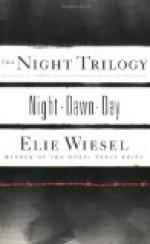The prince with reverence kissed his father’s hand,
Bent loving eyes upon his troubled brow
That banished all his bitterness and said:
“How hard it is to give up cherished hopes
I know full well. I know a father’s love.
Your love for me I for Rahula feel,
And who can better know that deepest love
Whose tendrils round my very heartstrings twine!
But crores of millions, with an equal love,
Fathers and mothers, children, husbands, wives,
In doubt and darkness groping blindly on,
Cry out for help. Not lack of love for you,
Or my Rahula or Yasodhara,
But love for them drove me to leave my home.
The greatest kingdoms are like ocean’s foam,
A moment white upon the crested wave.
The longest life is but a passing dream,
Whose changing scenes but fill a moment’s space.
But these poor souls shall live in joy or woe
While nations rise and fall and kalpas pass,
And this proud city crumbles to decay
Till antiquarians search its site in vain,
And beasts shall burrow where this palace stands.
Not for the pleasures of a passing day,
Like shadows flitting ere you point their place,
Not for the transient glories of a king,
Now clothed in scarlet but to-morrow dust,
Can I forget those loving, living souls,
Groping in darkness, vainly asking help.”
And then he showed the noble eightfold path
From life’s low levels to Nirvana’s heights,
While king and people on the master gazed,
Whose face, beaming with pure, unselfish love,
Transfigured seemed; and many noble youth,
And chief Ananda, the Beloved called,
Forsook their gay companions and the round
Of youthful sports, and joined the master’s band.
And as he spoke, crores more than mortals saw
Gathered to hear, and King Suddhodana
And sweet Yasodhara entered the path.
[1]I have substantially followed the description of this fearful route given by Fa Hian, the Chinese Buddhist pilgrim, who passed by it from China to India.
[2]Like the aspen, the leaf of the sacred fig-tree is always trembling.—“Two Years in Ceylon,” Cumming.
[3]This is Asvaghosha’s version, but the Sanchi inscriptions make the Naga or cobra rise up behind Buddha and extend its hood over his head as a shelter.
[4]Some Buddhists teach that Buddha had conquered all human affections, and even enter into apologies for a show of affection for his wife, one of the most elaborate of which Arnold, in the “Light of Asia,” puts into his own mouth; but this is no more like the teachings of Buddha than the doctrine of infant damnation is like the teachings of Him who said: “Suffer the little children to come unto me, and forbid them not; for of such is the kingdom of God.”
***End of the project gutenberg EBOOK the dawn and the day***




